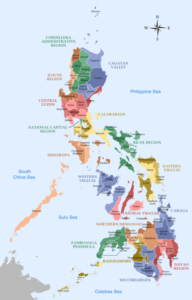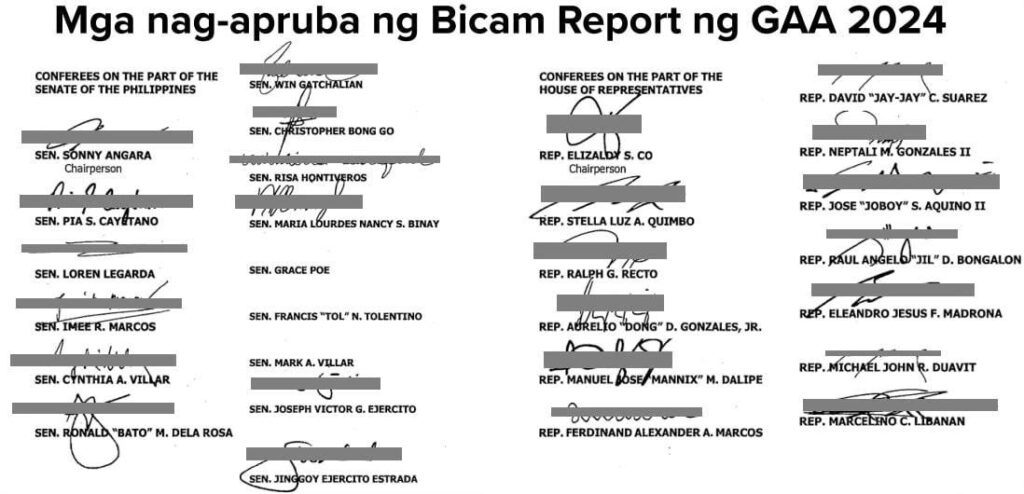By Diego Morra
Dr. Gideon Lasco, physician, medical anthropologist and columnist, made a splash by writing “The Philippines is Not a Small Country” in 2020 and, arguing like any of our ethnologist-colleagues would, that the country isn’t small in size, even if China maintains that it is and must surrender its territory to the revanchist Beijing, in adherence to the bogus principle that might is right, long after Hanoi whipped its ass in 1979.
In fact, the map shows the Philippines isn’t small and its maritime features are way beyond the 12th parallel that demarcated the Chinese dynastic territory from the time of the Ricci-Li map of 1602. What makes the Philippines a small country is the vigorous campaign of other nations to make it look small, and the obeisance of the so many administrations to colonial masters. Indeed, the entire trouble with the nation is that we have yet to overcome excessive hospitality to those who exploit, abuse and oppress us. Spanish colonialism, US imperialism Japanese fascism and now China’s version of the Greater East Asia Co-Prosperity Sphere continue to overdetermine the thinking of segments of our population. This is why you have troll armies, lawmakers and institutions pushing foreign interests. They all suffer from frontotemporal dementia when filthy lucre operates.
In his July 22, 2025 commencement address for graduates of the University of the Philippines-Baguio (UP Baguio) held at the Baguio Convention Center, Lasco actually dismisses the erroneous journalism of James Fallows in The Atlantic that reduced the entire Filipino people as being afflicted with “damaged culture.” What is indicative of damaged culture is the election of Donald Trump as US president twice, as reiterated by a recent essay by Presbyterian Rev. Dr. Robert L. Montgomery, who said it was appalling for Americans to send the con man Trump to the White House, not only once but twice. Technically, no culture is better than the other, no ethnic group superior than the rest of humanity even as practically all cultures have their world view, their creation myths and belief systems to hold their members together and survive.
Lasco’s commencement address zeroes in one distinctive point: National pride. Like being aware that the people of Batanes and the Cordillera once sailed to China using trade currents and educated those in coastal cities before the Pintados and Moros conducted slave raids using mother ships and dozens of smaller boats. There goes the difference: China is mighty proud of its dynasties and the US swims in endless chatter about its military power while the Spaniards still talk about civilizing the pagans in our distant shores. Myths about being the chosen people make the Jews believe Gentiles are inferior creatures, while the ban on pork in both Islam and Judaism is really about pesky pigs competing for food with Jews and Muslims. Ruminants, as the late anthropologist Marvin Harris argued, were better food sources, are work animals as well as sources of wool. Harris championed cultural materialism.
The address came as the UP Baguio presented the first batch of graduates from the Master of Arts in History (Ethnohistory and Local History) program and the students who finished their Doctor of Philosophy in Indigenous Studies degrees. The graduates were led by two summa cum laudes– Grandemir B. Baysa-pee, Bachelor of Science in Computer Science and Joycelle B. Umengan, Bachelor of Arts in Social Sciences (Economics.) UP Baguio should have been the center of indigenous studies inasmuch as the Cordillera was the hub of ethnolinguistic research for centuries. Moreover, it was the target of resource and human exploitation from the Spanish period onward, and the battle against oligarchic and rentier capitalism in the mines and hydroelectric dams continues till this very day.
“Yes, there’s corruption and impunity. Pine trees felled for malls. Mountains quarried for cement,” Lasco argued. “But the Philippines is not a small country. We are not a poor country,” recalling the statement of one politician who roared: “We are a rich country pretending to be poor.” He cautioned against narratives that institutionalize poverty or even romanticized and naturalizes poverty, something much better than Oscar Lewis’s culture of poverty. “It’s like saying someone is dead, when the truth is, he was murdered,” Lasco said. Indeed, the continuing crime is that Filipinos must overcome the characterization that they are “weak in the flesh and weaker in the spirit.” We are not, he intoned, citing the Cordillera heroes Macli-ing Dulag, Pascual Pocding, and even Tatay Emilio, the Itneg guide who once saved Lasco from drowning in the Gasgas River during a Cordillera hike. “Our country is larger than its problems,” Lasco declared. “Give it a chance.”
Dr. Lasco explained that “even in the most repressive regimes, there has been resistance,” he said. “Dictators have been toppled. And thanks to activists and culture bearers, there is renewed pride in Indigenous heritage.” He urged the graduates to live. “For themselves, for the people they love, for those they have yet to meet. There are people and there are moments that make it worthwhile. Live for the books yet to be written. The mountains yet to be climbed.” It is like sending them off on a mission that is as grand as changing a society that, like Rizal’s Bapor Tabo, is rudderless and cannot find its way like a black cow on a dark night. “Mabuhay—not just as a greeting but as a call to action. Live! Mabuhay! Live!” Lasco concluded his address.
Commencement speakers like Lasco should champion the truth even if it were wrapped in a mystical shell, just as the solution to the Philippine crisis will come deep within its womb, not from the ambitious plutocrats who are dividing the country into manageable corporate fiefdoms, with some of them controlling airports and expressways, dredging rivers in the guise of flood control projects to use the silt and solid materials to beef up an airport they are constructing. The more they privatize, sell off the state’s crown jewels and put the private sector in charge of food security, water distribution and power generation, the more the state neglects its duty to promote, defend and protect the people’s welfare. Now swamped with debt, the Department of Finance (DOF) is wooing overseas Filipino workers (OFWs), Filipino expats and even call center employees to buy retail treasury bonds (RTBs) at P5,000 a pop. After mismanaging the economy and sinking the country in the debt trap, they are back to filch whatever savings are left. Decency has abandoned them.




